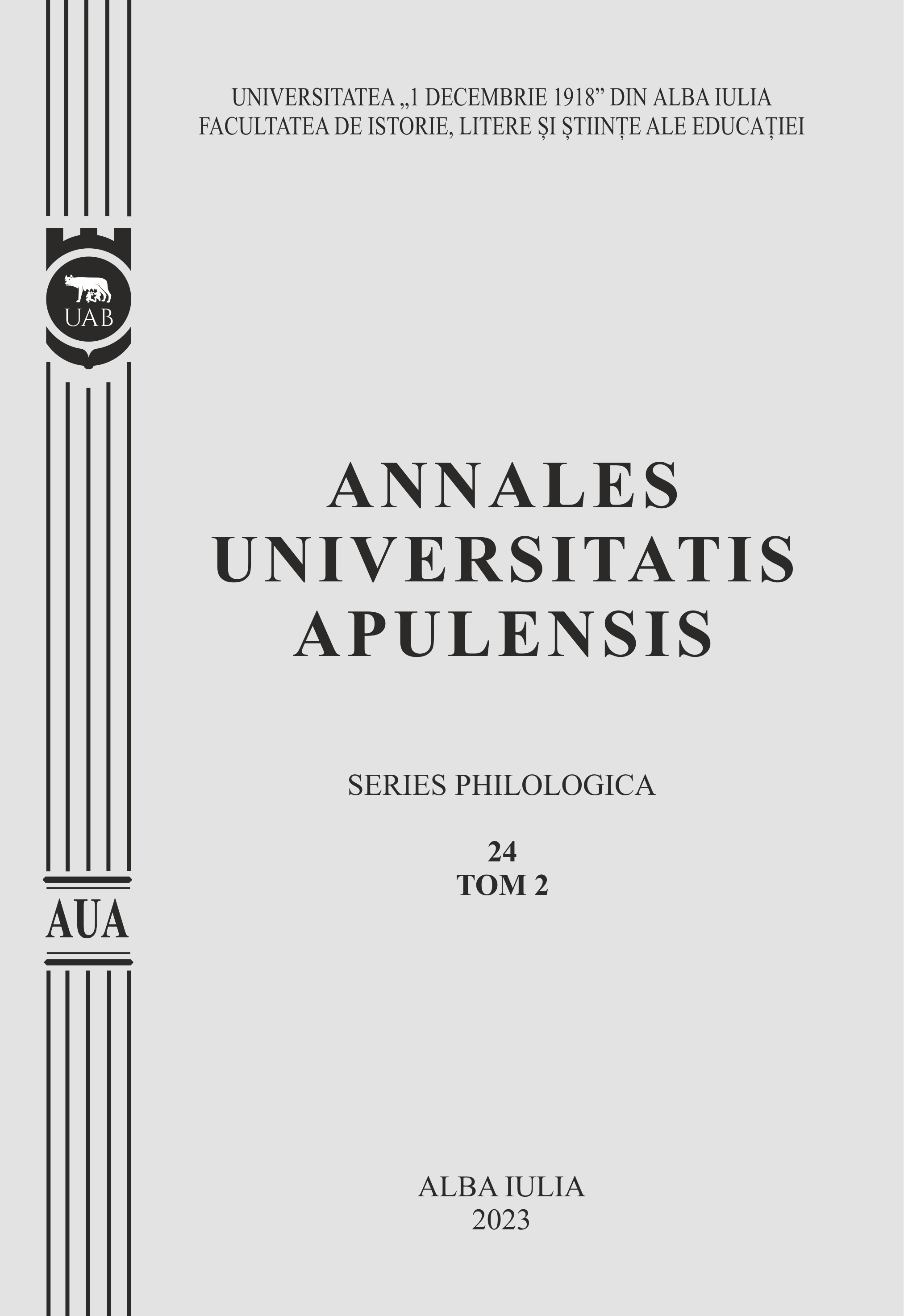VOLUNTARY DEATH IN THE WORKS OF VIRGINIA WOOLF – A GAME OF THE SUBCONSCIOUS
VOLUNTARY DEATH IN THE WORKS OF VIRGINIA WOOLF – A GAME OF THE SUBCONSCIOUS
Author(s): Bianca-Daniela Pop (Kopoșciuc)Subject(s): Language and Literature Studies, Studies of Literature, British Literature
Published by: Universitatea »1 Decembrie 1918« Alba Iulia
Keywords: depression; suicide; femalecharacter; subconscious; soliloquy;
Summary/Abstract: The present article aims to investigate how the issue of suicide is portrayed through the character of Rhoda in Virginia Woolf's novel, The Waves, a representative literary sample of 20th century literature. Woolf's preference for understanding psychological processes, explaining emotional turmoil, seeking existential meaning, and exploring consciousness compels her to create an atypical character, struggling with undefined emotional states. Through soliloquy, the author captures the inner experiences of several characters with different temperaments, including Rhoda ‘the faceless’, socially misfit, who ultimately commits suicide by drowning. The appearance of the subjective, psychological, analytical novel, whose main characteristic is the predisposition towards analysing and probing the depths of the inner life, towards introspection, leads to placing the emphasis more on complex individual motivations, and less on social determinism. Therefore, Rhoda is not an emblematic character, but unique, with an inconsistent affective dynamic, marked by intellectual and metaphysical disturbances, and suicide becomes the expression of the way of relating to the past reality through the filter of her consciousness. Compared to Susan and Jinny, poses that do not raise problems as they are adapted to everyday life and the way of society, Rhoda bears the imprint of a sensitive, fragile temperament, marked by the burden of anxiety, being a character who fails to give meaning to existence or to create her own identity. She always lives in the shadow of the other female poses, trying to copy their way of being and acting, admiring, and envying their sensuality at the same time. Of the six main characters, Rhoda is the outcast, having, since childhood, suicidal tendencies, being raised in an orphanage.Focusing on the human interior, replacing uniformity with fragmentation, and suppressing the demiurgic character of the narrator allow access to the deepest turmoil of the characters. If in the objective novel, the suicide is devoid of mystery, the narrator pointing out the conclusive events that can justify and clarify the psychological mechanisms that lead to a somewhat expected end, in the subjective novel, the character seems impenetrable. The female characters are relativized and ambiguous, so that voluntary death can no longer be attributed to a logical causality, representing, in fact, a multilateral mixture of motivations and determinants. Thus, the present research paper constitutes an incursion into the female human subconscious, plagued by unhealed and tormenting depression, accentuated by the social environment, and ultimately proving fatal.
Journal: Annales Universitatis Apulensis. Series Philologica
- Issue Year: 24/2023
- Issue No: 2
- Page Range: 128-136
- Page Count: 10
- Language: English

